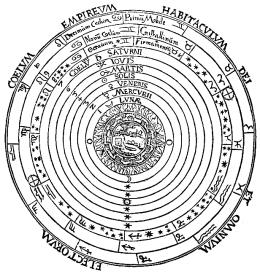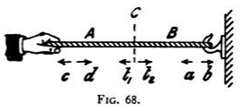 One version of the cosmological argument relies, among other assumptions, on the following:
One version of the cosmological argument relies, among other assumptions, on the following:
Every contingent being has a cause.
Leaving aside the necessity of defining what we mean by "cause", and of explaining how such an inductive statement could reasonably apply to a unique object such as the universe, I want to focus in this post on the concept of contingency.
 Logic is a tricky thing. Any sound argument must rely on it, but it is easy to build seemingly sound and logical arguments that are still wrong or fail to apply to the real world. Fuzzy or wrong premises, shortcuts in reasoning, as well as plain fallacies such as circular reasoning, are easy to obfuscate, and apologists are kings at this game.
Logic is a tricky thing. Any sound argument must rely on it, but it is easy to build seemingly sound and logical arguments that are still wrong or fail to apply to the real world. Fuzzy or wrong premises, shortcuts in reasoning, as well as plain fallacies such as circular reasoning, are easy to obfuscate, and apologists are kings at this game.  Most modern believers interpret their sacred texts as mostly metaphorical. Only the most hard-core fundamentalists maintain that Genesis for example is an accurate historical account of the origin of Humanity.
Most modern believers interpret their sacred texts as mostly metaphorical. Only the most hard-core fundamentalists maintain that Genesis for example is an accurate historical account of the origin of Humanity. This post started as a comment on
This post started as a comment on  The date and time have come and gone and you are still here. As we are waiting for the rationalization from Harold Camping, it is time to ponder what this means for you. A few possibilities:
The date and time have come and gone and you are still here. As we are waiting for the rationalization from Harold Camping, it is time to ponder what this means for you. A few possibilities: Sir Martin Rees
Sir Martin Rees  Apologetics is the systematic defense of a position. It's usually done by religious people in defense of their dogma.
Apologetics is the systematic defense of a position. It's usually done by religious people in defense of their dogma. When a Dutch cartoonist drew the prophet Muhammad, the world split between those who thought that was a serious crime that deserved death, and those who thought freedom of speech was more important than anybody’s susceptibility.
When a Dutch cartoonist drew the prophet Muhammad, the world split between those who thought that was a serious crime that deserved death, and those who thought freedom of speech was more important than anybody’s susceptibility. Many silly things have been written and said about
Many silly things have been written and said about  Michael Egnor has now answered
Michael Egnor has now answered